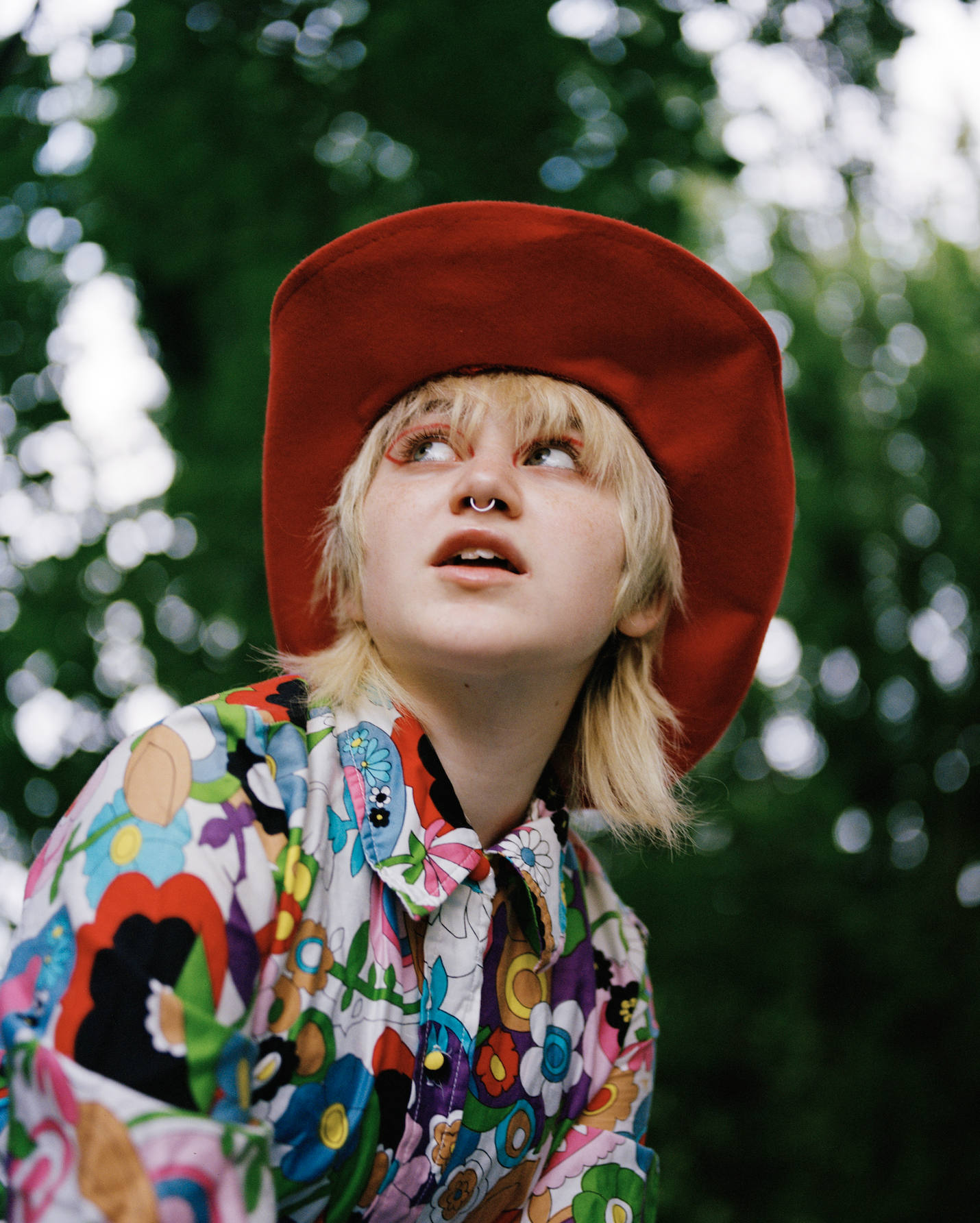As a new wave of queer Welsh artists arises, Casper James explores the experiences of transgender people in music and how we can support them.
‘Verna Meyer said that diversity is being invited to the party, but inclusion is being asked to dance. But to be truly inclusive we need to take a step back, and look at how we’ve planned our party to begin with.’
Sarah Lynn, facilitator/consultant for TransForm Music
I came out as transgender around 8 years ago. Until moving to Cardiff after lockdown, I had always lived in small villages in South Wales and been ‘the village gay’.
Growing up queer in rural Wales was not the smoothest experience for me, as I’m sure a lot of rural LGBT people can relate to. Shame, othering, and alienation were no strangers – along with aggression and threats due to my identity.
However, the ostracisation and fear inevitably lit a fire inside of me. Not an angry fire, but a determined one. It made me want to stand up for myself, hold my head higher, and fight for spaces where queerness was celebrated.
Starting my band TELGATE at the age of 15 was a major step towards liberating myself from the shame that is often projected onto transgender people. Fronting a punk band enabled me to shout about what I stood for, and be listened to. In a world which often tries to silence transgender people, music allowed me to find my voice.
When starting the band, I had never seen another transgender musician onstage, and I don’t think I could have even named a single transgender male artist or band.
However, from the very beginning of my journey in music, the lack of representation of transgender people in music has been loud. When starting the band, I had never seen another transgender musician onstage, and I don’t think I could have even named a single transgender male artist or band. It was years before I saw another transgender person onstage for the first time, and even now it feels like I’ve discovered the holy grail on the rare occasions that I do see a transgender musician on a lineup.
My band decided that we had a mission to fill the gaps we saw and be the representation we wished to see. We hope that others will feel empowered to do the same by seeing us be loud and proud. As we continue to make music to this day, our music-fuelled mission towards liberation seems to be on track.
It takes thick skin to be transgender in this world, and that includes in the music industry. While being onstage can be liberating and improve visibility to other queer people, it also made me more visible and vulnerable to transphobic or other hostile people. With such a lack of transgender and non-binary people working around me in the music industry, the ‘only gay in the village’ mentality sometimes feels as though it’s still around. I often catch myself feeling unable to speak to anyone who can understand the additional difficulties I have faced in music. This is alongside my wariness of speaking out about these difficulties because of the pressure for transgender voices to be palatable and unassertive in order to be listened to.

I decided that it was time the industry acknowledged there is work to be done to support transgender and non-binary people involved in our music scene. So with the organisation Beacons Cymru, and start-up funding support from Anthem Cymru and the Welsh Government, I founded TransForm Music, a call for action for Wales’ music industry to step up, take accountability for the safety of the transgender and non-binary people who occupy its spaces, and be proactive in ensuring they can feel at home and be celebrated within live music.
We are a solutions-driven project created for transgender and non-binary people, led by transgender and non-binary people. Our approach to campaigning for progress relies wholly on the lived experiences of those who take part in our research, and on the needs and suggestions they expressed.
In 2022, TransForm Music conducted research into the experiences and needs of transgender and non-binary people who work in the music industry or attend live music in England and Wales, using surveys and a series of focus groups. Every person who took part in this research identified as transgender and/or non-binary.
Innovative. Informed. Independent.
Your support can help us make Wales better.
One of these survey’s is Trans Inclusion in the Music Industry, which will be released later this year. This survey was the first of its kind and provided illuminating results. 100% of our survey respondents said that they felt as though there was not enough support available for them in music. Simply talking about inequality is not enough: we must move from passive to proactive allyship.
An encouraging discovery from our research was that 40% of the respondents who have never worked in music said that they would like to work in the music industry, but they mentioned many barriers that were holding them back, such as underrepresentation, low funds, lack of access to financially accessible equipment and skill building opportunities, low self esteem and fears of facing further transphobia. Respondents said that increased representation, with more opportunities to upskill along with promoters being more open to booking new LGBT+ acts, would make them feel more inclined to get involved in the music industry.
The findings of Trans Inclusion in the Music Industry emphasise why venues should be taking action to tackle the underrepresentation of transgender and non-binary people in the workforce and on lineups, and the impact this could have. The majority (87.5%) of people we spoke to either rarely or had never worked in a space in music with other transgender or non-binary professionals, an isolating and at times uncomfortable experience. Many also felt underrepresented in music, but noted that seeing a transgender/nonbinary performer or musician could be a positive experience likely to make them feel less uncomfortable expressing their gender identity.
Music saves lives and has never existed to serve the status quo – therefore our music spaces should be for everyone
Trans Inclusion in the Music Industry also brought forward how crucial it is for music spaces to make serious advancements towards preventing transphobic hate and assault within their spaces, and improving their approach to encouraging reporting and responding to incidents. Almost half of those surveyed (46%) shared they had endured transphobic assault or harassment at work in the music industry, and a quarter of the victims who reported incidents found that no action was taken.
Based on the ideas generated within our focus groups, we created TransForm Music: Transgender and Non-Binary Inclusion Guidelines for Music Venues which will be sent to music venues across Wales in 2023. Venues will be offered an opportunity to sign a pledge to be considered a TransForm Music accredited venue and added to our map of safer space venues for transgender and non-binary people in Wales, if their venue implements key adjustments from the guidelines. We are also looking into providing safeguarding training to create safer spaces for trans and non binary employees, audience members, artists and contractors.
Ultimately, we’re honing in on the concept of “Safety First!”. I want to be sure that the scene will be safe for transgender and non-binary people and a place where they can thrive as their honest selves.
We can’t change the world. But with solidarity, proactive allyship, and community, a world of possibility opens up to us. Music saves lives and has never existed to serve the status quo – therefore our music spaces should be for everyone. TransForm Music is one step towards making sure music spaces are for everyone, but we shouldn’t be a lone voice in this.
My vision is that in ten years, if a trans kid decides they want to be a rockstar they will not question that dream due to their identity. They will have role models, music venues equipped to nurture them, and people like them in corners of the music industry. Instead of being afraid of not belonging, they will venture into creating music with the mindset of “I can, I deserve to, and I will”.
All articles published on the welsh agenda are subject to IWA’s disclaimer.




